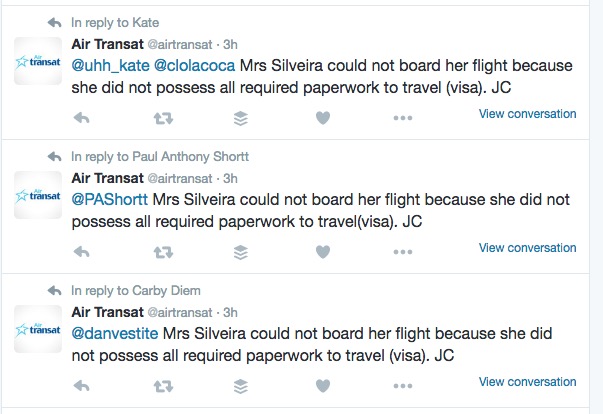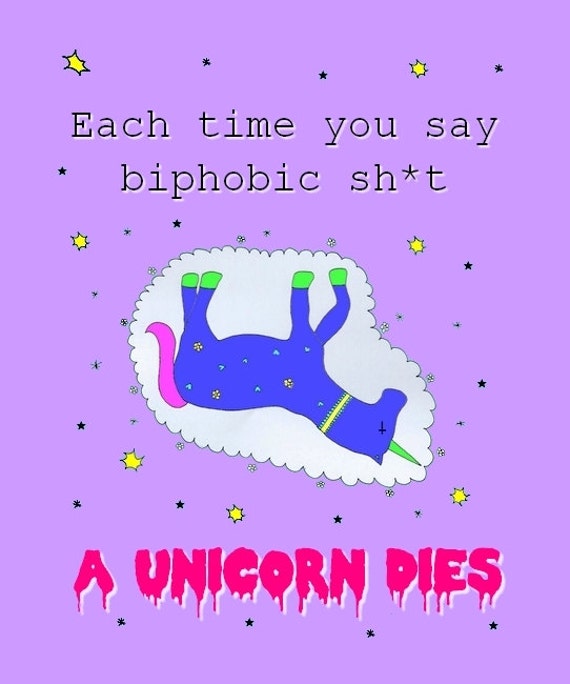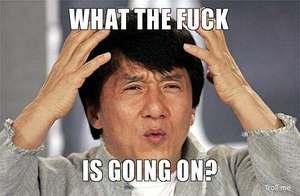AB Silvera was planning to travel from the UK to Canada early this afternoon to attend a wedding with her girlfriend. Instead, she’s spent six hours in the airport and is going back home.
Why?
Because she’s trans.
Here, in her words:
The situation is as follows: I am a dual citizen of the Italian Republic and the Republic of Argentina. Today, Air Transat has denied me boarding a flight bound to Toronto, Canada from Glasgow, Scotland.
I am a transgender woman. My Italian documentation was made before transition and uses the first name “Ariel”, shows an older photo, and a gender marker “M”. However, I have used it consistently to travel for the last 8 years, both within Europe, to the United States, and to South America, with no issue. This is the first time I have been denied boarding a flight.
I travel with supporting documentation because I have been questioned about my passport photo before. This documentation includes my Argentinean passport with the correct gender (and a recent photo), and a notarized sworn affidavit with a legalized translation. This affidavit is a binding document of the Argentine Republic declaring my change of name from Ariel to Ari Bianca, and declaring my change of gender.
When asked for documentation, I provided all three documents (two passports and affidavit) to an Air Transat representative. They spoke to a representative of the Canadian High Commission in the United Kingdom and told me that I can only travel on my Argentinean passport, but I wouldn’t be travelling today as I didn’t have a visa. I did not apply for a visa because it was not needed with my Italian passport.
The Air Transat representative called “Emma”, refused to give me her last name but phoned the High commission representative for me. The High Commission representative kindly explained this was a decision made by the airline at their discretion. In other words Air Transat made the decision to deny my flight, today, despite my carrying two legal documents, simply because I don’t look the same way as I did 8 years ago, before I began taking hormones.
I have not managed to obtain a new Italian passport yet due to the complex nature of gender recognition procedures through Italian bureaucracy. However, this decision is probably illegal under anti-discrimination UK law; it refuses to accept my valid Italian documentation, maybe breaking Canada-Italy travel treaties; and it fails to recognise my Argentinean sworn affidavit and its connection to my Italian passport as valid.
All because of a simple photo. A photo which, when provided with supporting documents, has never caused any airlines (Ryanair, American Airlines, British Airways, EasyJet, to name a few) from ever preventing me from boarding a flight.
I have contacted Air Transat on Twitter. After a four hour wait, they responded with a different story. In their new version of events the issue wasn’t my passport photo, but rather that since I’m Argentinean, I need a visa for Canada anyway, ignoring my valid Italian passport which entitles me to visa-free travel.
I believe Air Transat have changed their sorry to cover up the discrimination issue.
Let’s be clear about what happened here:
- AB is an Italian citizen. As such, she is entitled to travel to Canada without a visa.
- AB holds a valid Italian passport.
- She also has an Argentinian passport. This one has a different gender marker to her Italian documents because bureaucracy is a massive, complicated pain.
- She has documents confirming that she is who she says she is. Three of them.
- She doesn’t look like she did eight years ago.
- Despite her being AN ITALIAN CITIZEN WITH A VALID PASSPORT WHO IS ENTITLED TO TRAVEL TO CANADA WITHOUT A VISA, Air Transat refused her permission to board.
- Air Transat refused her permission to board because she doesn’t look the way she did eight years ago and has a different gender marker. Despite her having all the necessary documentation showing that she is trans and confirming her identity.
This is a clear case of transphobic discrimination against AB.
It gets worse.
Here is what, in my view, Air Transat should have done, once the company discovered what its agents had done:
- Apologised. Profusely.
- Made immediate arrangements to ensure AB’s comfort and well-being. Airports have paid lounges. Nice ones. Gotten her access to there, straight away.
- Apologised again for good measure.
- Made immediate arrangements with her to get her and her partner on the next flight or set of flights to her destination. She has an event to get to.
- Compensated her for the considerable distress they caused her.
- Update company policies and get all customer-facing staff trained in basic courtesy towards their trans passengers as soon as possible.
- Issue another apology, public this time, indicating everything they’ve done to prevent this from happening again.
That was not what happened. Instead? They left her waiting in the airport for hours on end. During this time they claimed multiple times on social media that they had been communicating with her. This text was sent to multiple people:
@jeflew Hi Jeff, We’ve been messaging with AB Silvera. We’re looking into the matter. Rest assured our policy is never to discriminate. JC
— Air Transat (@airtransat) June 25, 2016
According to AB’s partner Eilis- who was with her at the time- that “messaging”? A single DM and then silence:
Just so folks know. @airtransat contacted @ab_silvera about 3 hours ago, via DM, to ask for booking number. Responded. Nothing since then.
— Eilís Ní Fhlannagáin (@dirtycitybird) June 25, 2016
This wasn’t “messaging”. This was a single message which gave no information and then leaving them to sit in the airport for hours on end with no indication about what was going on. After seven hours of this, AB and Eilis went home. Luckily for them, AB’s home was close enough that this was possible. However, this could just as easily have happened if they were taking a flight that didn’t leave from her home city.
What happened next? Lies.
Here is what Air Transat claim: that this wasn’t about AB’s transness. No- it was about her Argentinianness:
This is, by the way, a lie.
Either that, or Air Transat- an airline who run regular transatlantic flights- are unaware of how visas, citizenship and passports work. In their world, if someone has dual citizenship then they’re only entitled to rights if both of the countries they’re citizens of grant them. I’m not sure why they think people bother getting dual citizenship at all in that case- since if you need two countries to grant you a right, you’d lose out straight away wherever you go.
Fortunately for the world, that’s not how it works. If you’re a citizen of two countries then you get the rights, privileges and responsibilities that come with both. If you have two passports, you get to decide which to fly with.
Because this is what Air Transat are trying to do: in order to get out of admitting that they made a massive, transphobic screw-up, they’re denying AB’s Italian citizenship. They’re pretending that it doesn’t exist, and that she wasn’t there with a valid Italian passport.
They’re also, by the way, misspelling both her name and her title. Impressive, when you consider that AB Silvera has been tagged in a few dozen tweets filling up their inbox, and that as she’s travelling with her girlfriend (who she’s not married to) it’s reasonable to expect that she’s a Ms, not a Mrs. I’m not mentioning that for petty reasons, by the way. I think that it’s a very visible sign of the abject lack of seriousness and respect that they’re giving to this situation. And the abject lack of dignity that they’ve shown towards AB.
Air Transat are trying to make it seem like this isn’t about transphobia. Like this isn’t about transphobia:
Before changing their tune, @airtransat claimed issue was my Italian passport picture not looking like me. https://t.co/1s7WMD6XLK
— AB Silvera (@ab_silvera) June 25, 2016
@dirtycitybird @airtransat they said ‘if you traveled as a male’. Which I’m not.
— AB Silvera (@ab_silvera) June 25, 2016
So let’s be clear about this:
- Air Transat took issue with AB’s transness. They refused to let her fly because she is trans and because her documentation made that clear.
- They told her that she should pretend to be a man in order to get on the plane in future, explicitly denying her gender.
- They are now trying to make people believe that this is because she didn’t have a visa that she doesn’t have to have.
And now? Let’s add some extra insults to an already-hemorrhaging injury, shall we? Because at the end of that, after leaving AB and Eilis to sit in an airport for seven hours with no information on what they were doing? Here’s what Air Transat are going to do:
Thx everyone for support& passion. I’m going to relax at home with @dirtycitybird Air Transat will call on Monday, 2 days late, but yeah
— AB Silvera (@ab_silvera) June 25, 2016
AB and Eilis should have flown out on Saturday afternoon. They have a wedding to attend on the other side of that flight. Air Transat care so little about this that they’re not even bothering to phone them until Monday. Assuming they do that.
Here’s where I’m going to ask you to do something: don’t let them get away with this. Please. Please tell people about this. Tweet @AirTransat and let them know that they can’t do this and sweep it under the carpet- and please keep it firm but civil. If you have a bigger platform or know someone who does? Tell them about this. Use them. Air Transat want to make this go away. Don’t let them.
Note: I have published an update on this topic which clarifies some issues which were unclear and also has some current information on the situation. Please read it before commenting here! Thank you.















